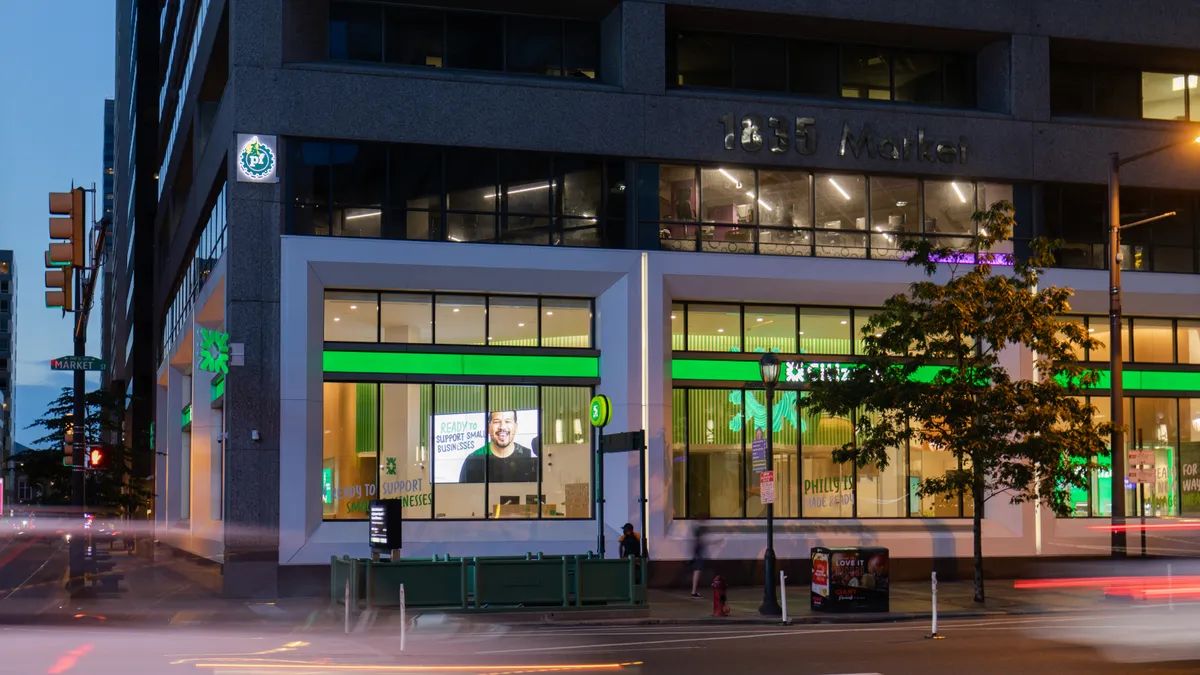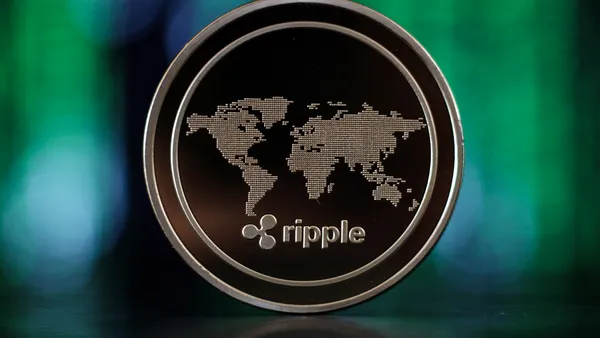Dive Brief:
- Citizens Bank expanded its partnership with Microsoft, giving shoppers the option to choose no-interest financing when purchasing through the Microsoft Store digital distribution platform.
- The bank's payments platform will handle point-of-sale financing for Microsoft Store, the companies said in a press release this week, allowing consumers to spread out payments for hardware, subscription services or accessories bought through the tech giant's online store in the U.S.
- Citizens in 2019 began providing integrated financing for Microsoft’s Xbox All Access Program, which bundles the console and gaming services, and that gave Microsoft the ability to embed financing into the program at such retailers as Walmart, Target and Best Buy.
Dive Insight:
Software behemoth Microsoft's new retail offering gives consumers one more option to buy now and pay later.
The BNPL trend took hold in other countries before gaining traction in the U.S., but it's quickly catching on stateside. As e-commerce skyrocketed during the COVID-19 pandemic and younger consumers shied away from credit cards, the ability to break up a purchase into a series of equal payments over a period of time has appealed to millions of consumers. That demand has prompted more fintechs, banks and card companies to elbow their way into the space.
BNPL transactions are projected to jump from an estimated $226 billion this year to $995 billion by 2026, according to a Juniper Research report.
Microsoft Store customers can choose 12- or 18-month installment terms through Citizens' line-of-credit payment structure, allowing customers to make subsequent purchases after an initial credit check.
Microsoft Store shoppers already have the option to split purchases into four equal payments through Klarna.
Andrew Rostami, president of the bank's Citizens Pay division, declined to comment on Microsoft's other partnerships, but said he envisions the Citizens option being used for bigger-ticket investment items like laptops, tablets and gaming consoles, when customers want to spread out payments over 12 or 18 months.
The bank is working with "more sophisticated" merchants who may have tried BNPL and are now "ready to take the training wheels off, where they want more of an industrial-grade solution," Rostami said.
"We’re not just throwing a checkout widget online on their checkout page. We’re much more of … a fundamental platform they can leverage across their experiences," Rostami said.
Citizens has been in point-of-sale financing for about five years, he said, working with tech giant Apple, warehouse club BJ’s and home decor and furniture retailer Z Gallerie. Citizens Pay had originated about $8 billion in loans as of June, for more than 6 million customers.
The expansion with Microsoft arrives amid the busy holiday shopping season, which has been good for BNPL so far. During the Thanksgiving weekend, digital payments company PayPal’s BNPL transactions more than quadrupled on Black Friday, CEO Dan Schulman said. And Australia's Afterpay saw a 34% increase in in-store and online installment payment orders.
"This partnership with Citizens allows us to bring this new offering to consumers in time for the holidays," Microsoft Store General Manger Jesper Chou said in Monday's release. "Consumers are very interested in innovative solutions that allow them to purchase the latest products in an affordable manner."
As a growing number of retailers partner with BNPL companies like Affirm, Afterpay, Klarna and Sezzle, a recent Forrester report predicted more banks would get in on the installment trend to stay competitive with fintechs. Card giants Visa and Mastercard have each introduced installments programs. Rostami said he expects to see increased competition as BNPL continues to heat up.
BNPL isn’t without risk for consumers, and it’s expected to come under more scrutiny from the Consumer Financial Protection Bureau (CFPB). Rostami said Citizens Pay does extensive underwriting to make sure customers have the ability to pay, to ensure the financing is "very responsible."
"These can be great tools for a merchant to grow sales and for a customer to get access to credit," he said, but the bank wants to make sure it's doing that "in a really smart way, so it’s actually the right thing for the consumer."















